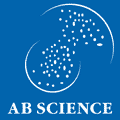
Prostate cancer is one of the most common types of cancer in men.
Masitinib is currently investigated in first-line metastatic castrate-resistant prostate cancer (mCRPC).
This patient population consists of patients who have disease progression despite androgen depletion therapy (castration) treatment.
There is still a need for more effective first-line treatment of mCRPC since recent therapies approved for CRPC are drugs used either prior to chemotherapy or used for non-metastatic castrate-resistant prostate cancer.
Evidence indicates that recruitment of inflammatory cells facilitates the growth and spread of some cancers, including prostate cancer, by producing molecules that enhance tumor invasiveness. Indeed, there is a known association between inflammation and advanced prostate cancer development [Kazma, 2012; Aldemir, 2010].
Mast cells are known to orchestrate inflammatory processes and contribute to the inflammatory cascade by merit of the wide array of pro- inflammatory mediators they release. Moreover, Taverna et al and Johansson et al have demonstrated mast cells to be independent prognositic markers for prostate cancer progression [Taverna, 2013; Johansson, 2010].
Summary of prostate cancer clinical program with masitinib
| Phase | Design | Population | Primary Target | Patient Target | IDMC recommandation | Study Status | Related publications |
|---|---|---|---|---|---|---|---|
| 1/2 | Prospective, open-label, 2 parallel-group study | Patients with Hormone Refractory Prostate Cancer (HRPC) in progression after first line of treatment | Overall Survival (OS) | 34 | NA | Study completed | – |
| 3 | Prospective, double-blind, placebo-controlled, 2-parallel groups study | Patients with metastatic Castrate Resistant Prostate Cancer | Progression Free Survival (PFS) | 470 | Continuation of the study without resampling option (based on interim analysis and safety data) | Recruitment ongoing | – |
Phase 1/2 proof of concept
Clinical phase 1/2 proof of concept with masitinib in prostate cancer supported the development of masitinib in prostate cancer in combination with docetaxel. This phase 1/2 study which included patients with Hormone Refractory Prostate Cancer (HRPC) in progression after first line of treatment, tested the combination of masitinib with docetaxel. The median overall survival reached 18.4 months in the masitinib plus docetaxel arm with a lower bound of the corresponding one-sided 75% CI of 17.8 months. This median OS compared favorably to a meta-analysis of overall survival of 14.4 months (after the arrival of enzalutamide).
Phase 3 study
Patients
If you wish to participate in this study, please contact us at the following address:
clinical@ab-science.com




